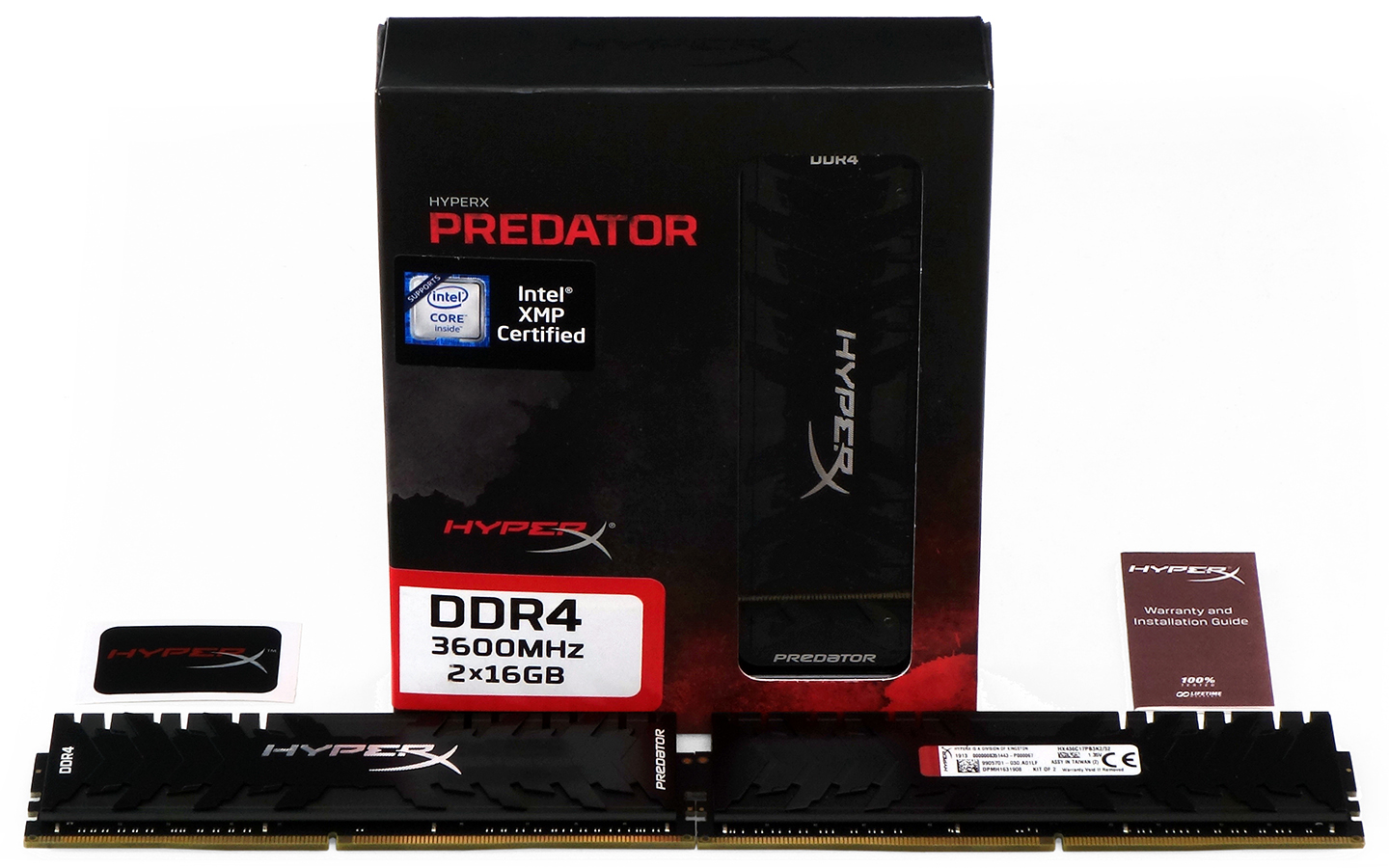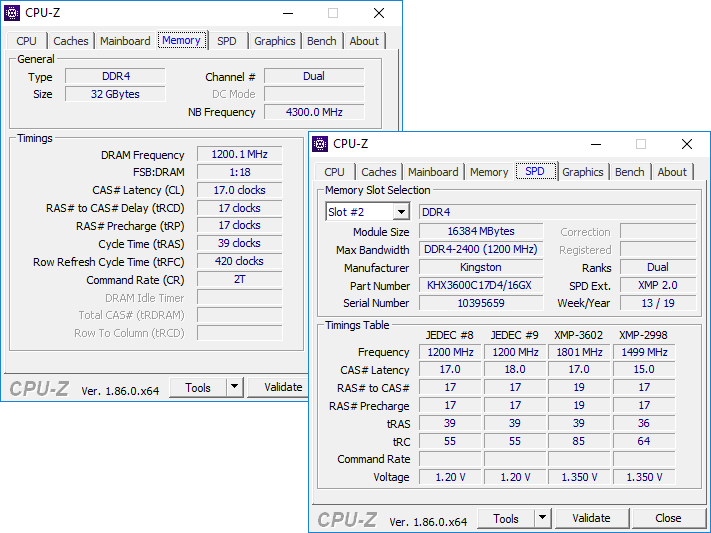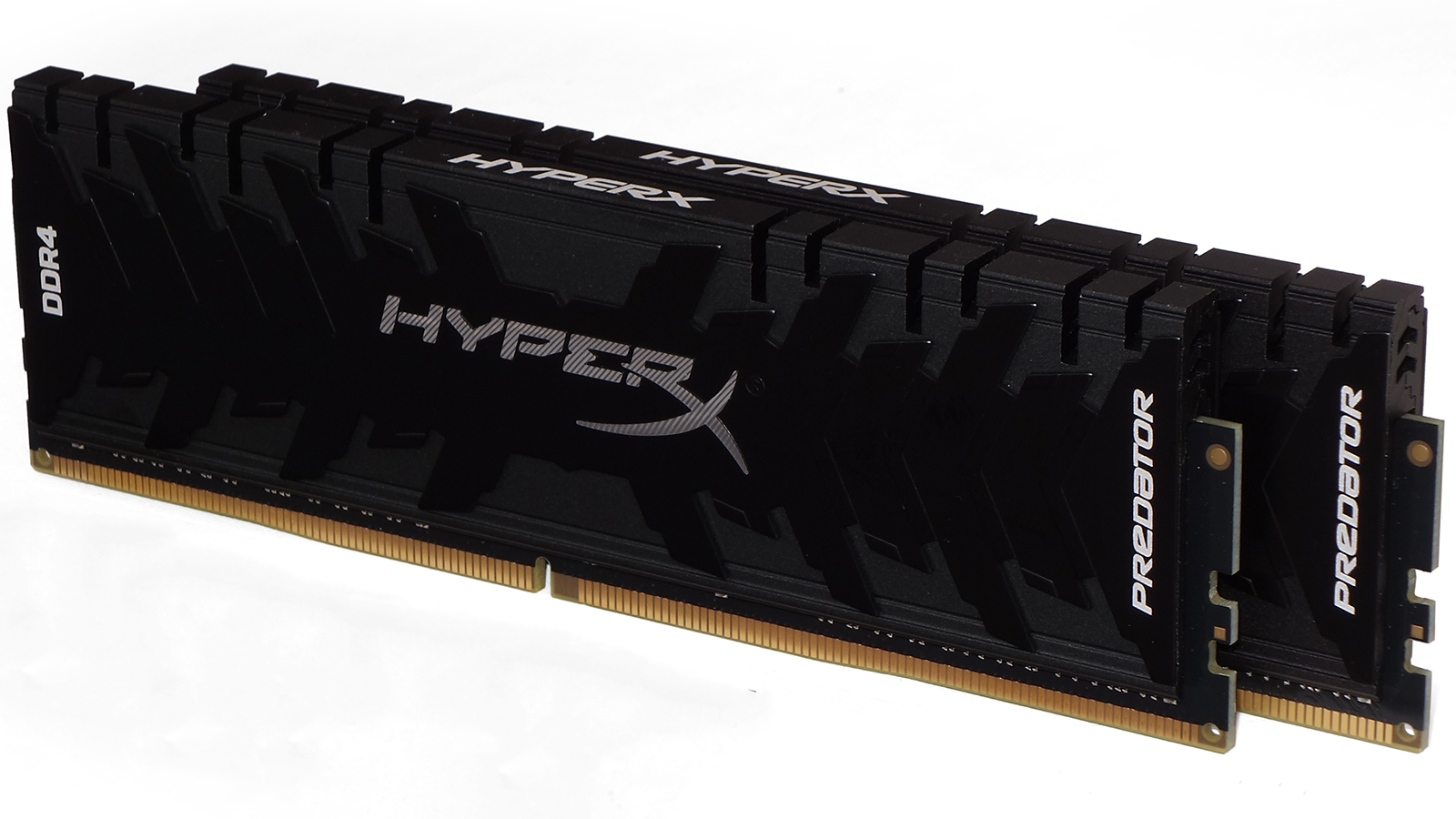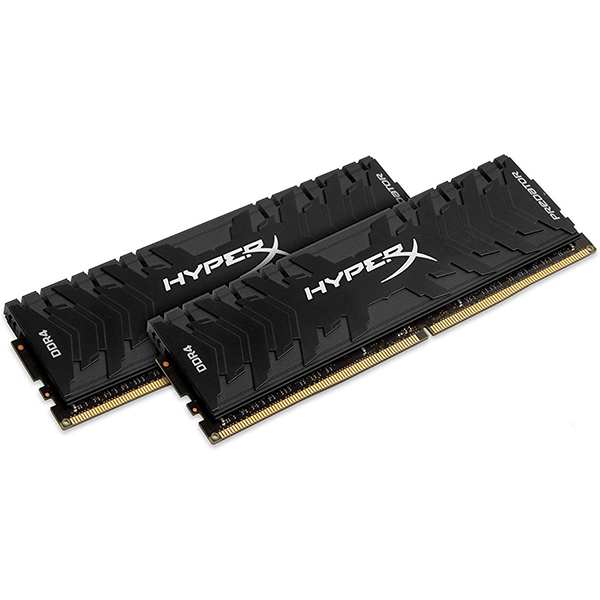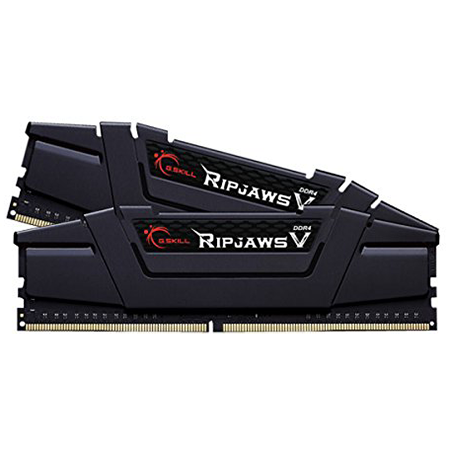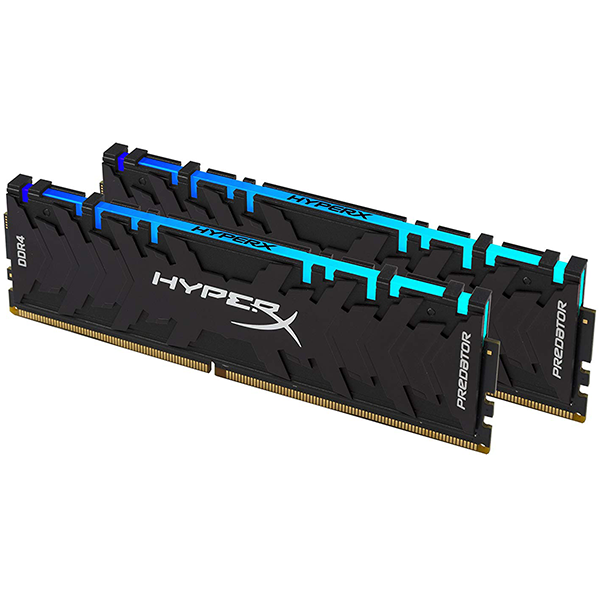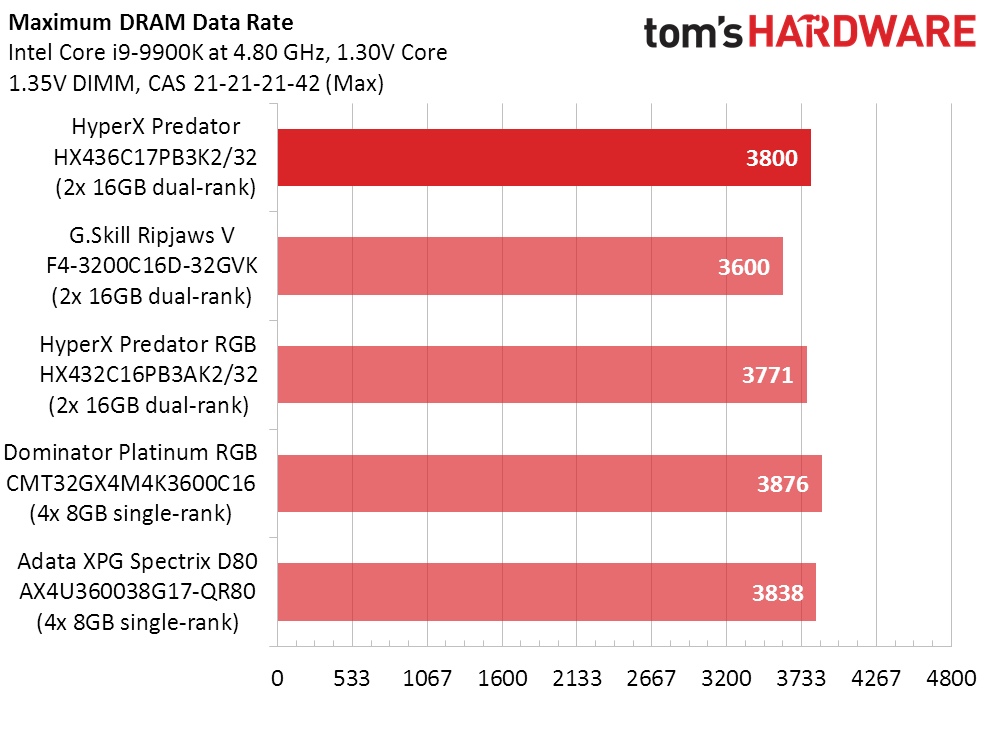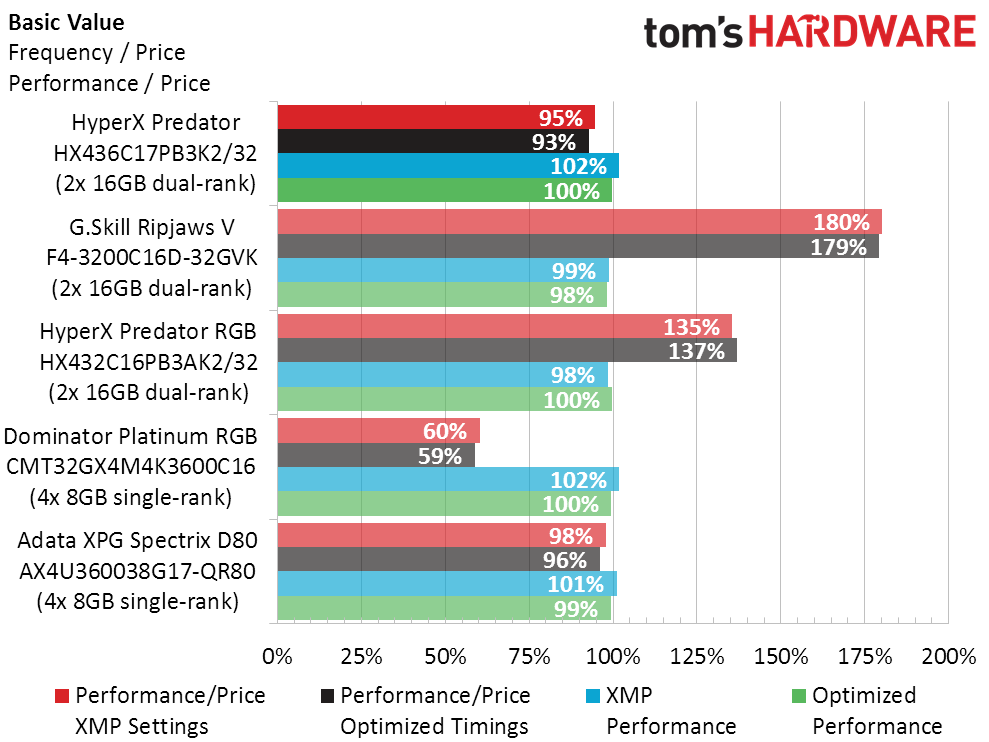Tom's Hardware Verdict
The HyperX DDR4-3600 C17 2x 16GB kit sports good timings and an XMP backup for boards that can't handle its high advertised speed. But it's a little expensive considering its lack of a built-in light show.
Pros
- +
Better-than-average DDR4-3600 Timings
- +
Secondary DDR4-3000 XMP assists stability on fussy memory controllers
- +
No lighting to annoy anti-RGB buyers
Cons
- -
RGB prices for non-RGB memory
Why you can trust Tom's Hardware
Kingston's HyperX brand kicked off our recent 32GB dual-DIMM series with a moderately-priced RGB-equipped DDR4-3200 kit that’s value rating benefited from recent, drastic price reductions. While today’s non-RGB DDR4-3600 version has also seen reductions, its price is still fairly high at $343 / £310, which these days is only somewhat reasonable for its premium-class DDR4-3600 C17 rating. Since the closest matches in both specification and price have RGB, its greatest failing is that it’s not cheaper than the RGB-equipped memory that it most-closely competes against.
To be competitive, premium-class memory should have no more than one cycle of latency for every 100 MHz of clock rate (200 MHz of data rate). The HyperX Predator model HX436C17PB3K2/32 we're looking at here splits that expectation with DDR4-3600 timings of 17-19-19, which is one cycle quicker in CAS Latency (tCL), but one cycle slower in other timing metrics, tRCD and tRP.
A second XMP of DDR4-3000 at CAS 15 offers stability to buyers whose boards or CPU memory controller isn’t compliant enough to run the higher data rate. And while the DDR4-2400 non-XMP setting is a reasonable fallback for people who order this memory without considering their hardware’s capability, we hope that most buyers spending this much money for added performance will have made those same considerations before ordering their hardware.
While many builders shun RGB, the “don’t want to pay for it” justification doesn’t seem to apply to HyperX Predator modules: Pricing for this kit is a few dollars higher than that of the closest-matching kit we could find at major sellers. So in this case at least, you'd be paying for the absence of RGB by opting for this HyperX kit.
Comparison Hardware & Test Configuration
Our current review data includes only DDR4-3200 variations of 2x16GB kits. We’ve included two pair of 4x8GB DDR4-3600 for performance comparison, understanding that four 8GB ranks should perform the same regardless of whether they populate one side of four modules, or both sides of two modules.
Asus’ Maximus XI Hero hosts Intel’s Core i9-9900K processor at a fixed 4.80 GHz frequency in our test rig, using Fractal Design’s Celsius S24 to keep it cool. Toshiba’s OCZ RD400 NVMe SSD and MSI’s GTX 1080 Armor OC reduce non-DRAM bottlenecks.
Overclocking & Timing Optimization
Getting beyond DDR4-3800 is difficult with our Core i9-9900K, but the two previous kits supported the same ratios at increased BCLK of 101 MHz for the XPG Spectrix D80, and 102 MHz for the Dominator Platinum RGB. The DDR4-3600 version of HyperX Predator gets close to those highs, and handily out-overclocks the DDR4-3200 samples.
Get Tom's Hardware's best news and in-depth reviews, straight to your inbox.
| Lowest Stable Timings at 1.35V (Max) on ROG Maximus XI Hero (BIOS 0805) | ||||
| DDR4-4000 | DDR4-3466 | DDR4-2933 | DDR4-2400 | |
| HyperX Predator RGBHX436C17PB3K2/32(2x 16GB dual-rank) | ✗ | 16-18-18-36 (2T) | 13-15-15-30 (1T) | 11-13-13-28 (1T) |
| G.Skill Ripjaws VF4-3200C16D-32GVK(2x 16GB single-rank) | ✗ | 17-19-19-38 (2T) | 14-16-16-35 (2T) | 11-13-13-28 (1T) |
| HyperX Predator RGBHX432C16PB3AK2/32(2x 16GB single-rank) | ✗ | 16-18-18-36 (2T) | 13-15-15-30 (1T) | 11-13-13-28 (1T) |
| Dominator Platinum RGBCMT32GX4M4K3600C16(4x 8GB single-rank) | ✗ | 15-15-15-30 (2T) | 13-13-13-28 (1T) | 11-11-11-28 (1T) |
The greatest oddity here is that HyperX Predator DDR4-3600 reached exactly the same minimum stable timings as the HyperX Predator RGB DDR4-3200. At a glance, it appears they’re using the same DRAM ICs (chips), with the better overclock of higher-rated modules coming only from some sort of pre-production speed-binning.
Benchmarks
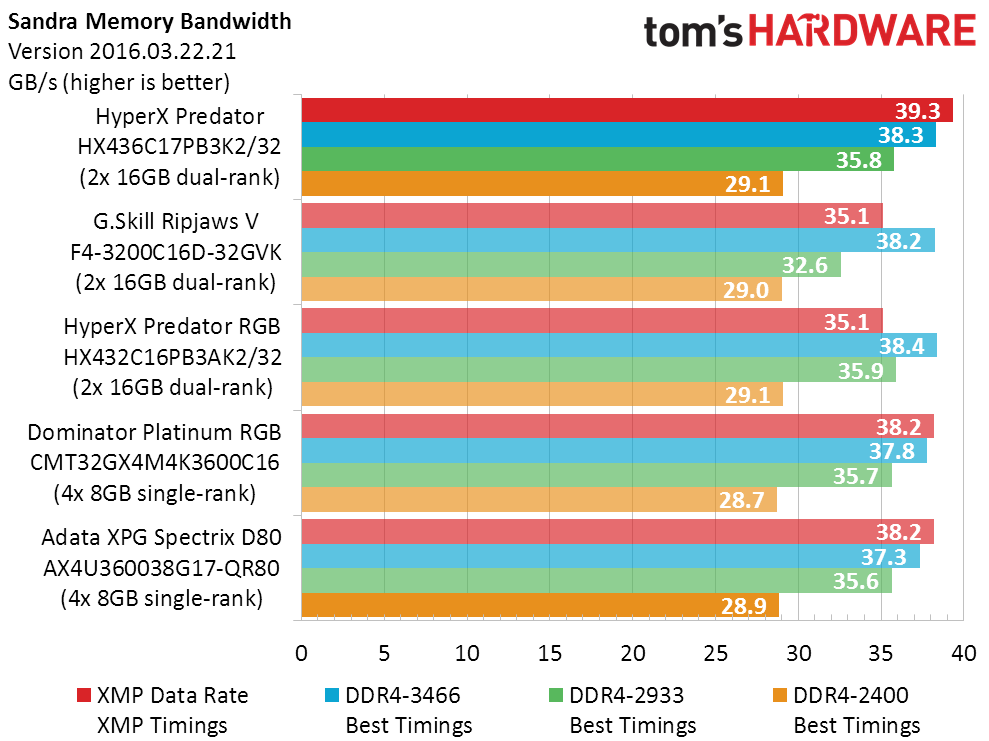
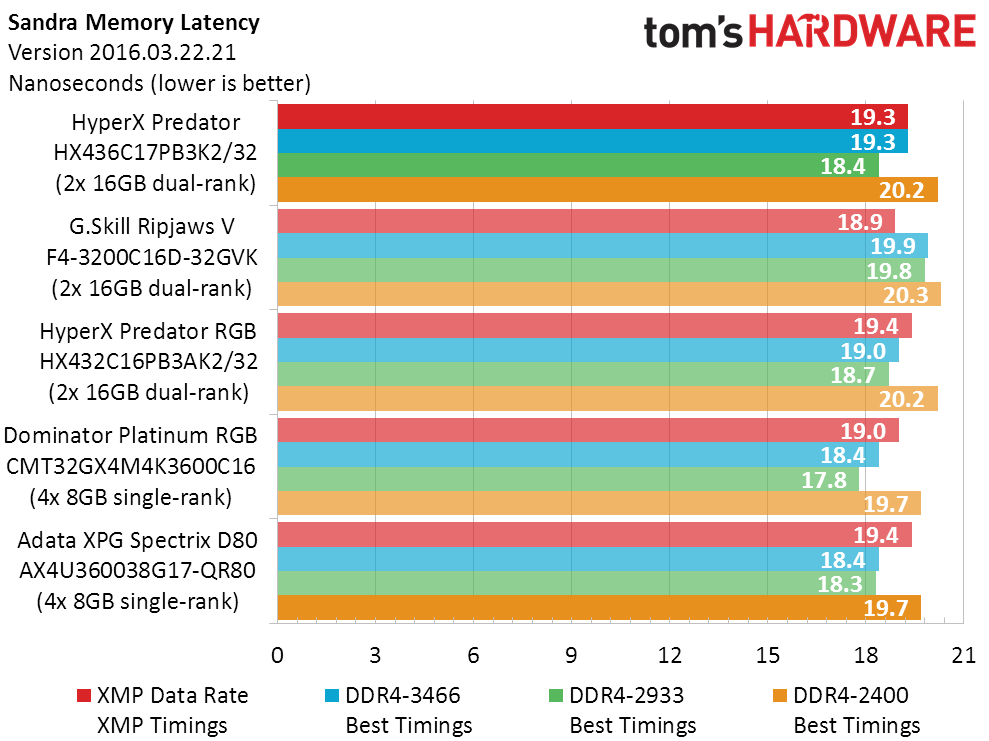
Surprise! The HyperX Predator DDR4-3600 had the highest data rate of any recently-tested 32GB kit! But, it fell to third place in latency, where less time means quicker response.
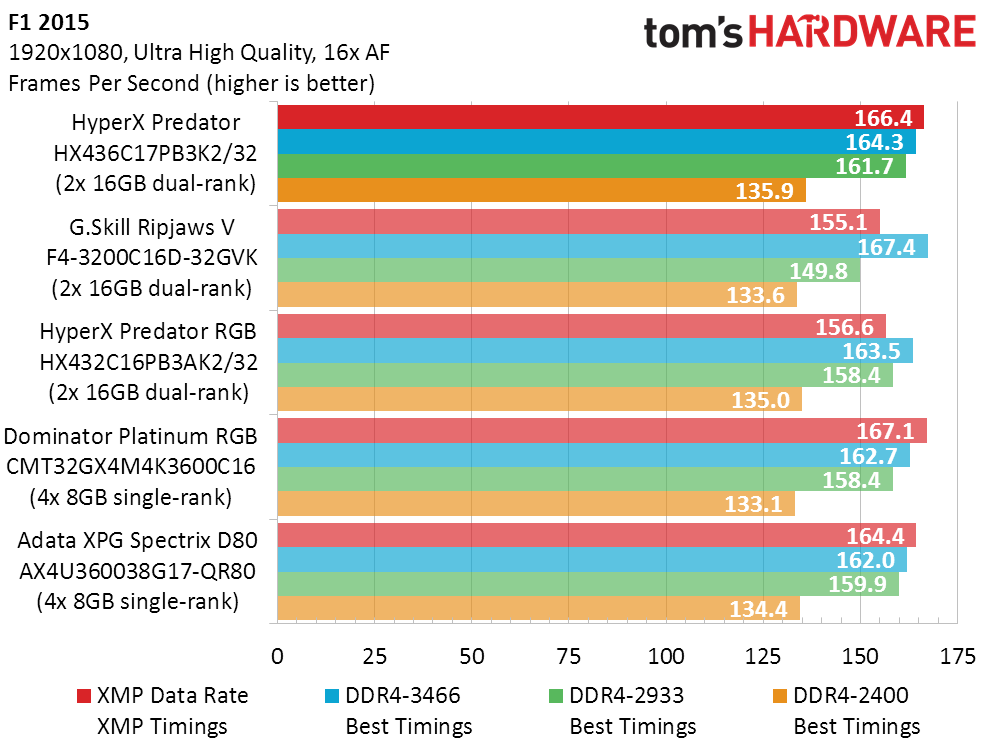
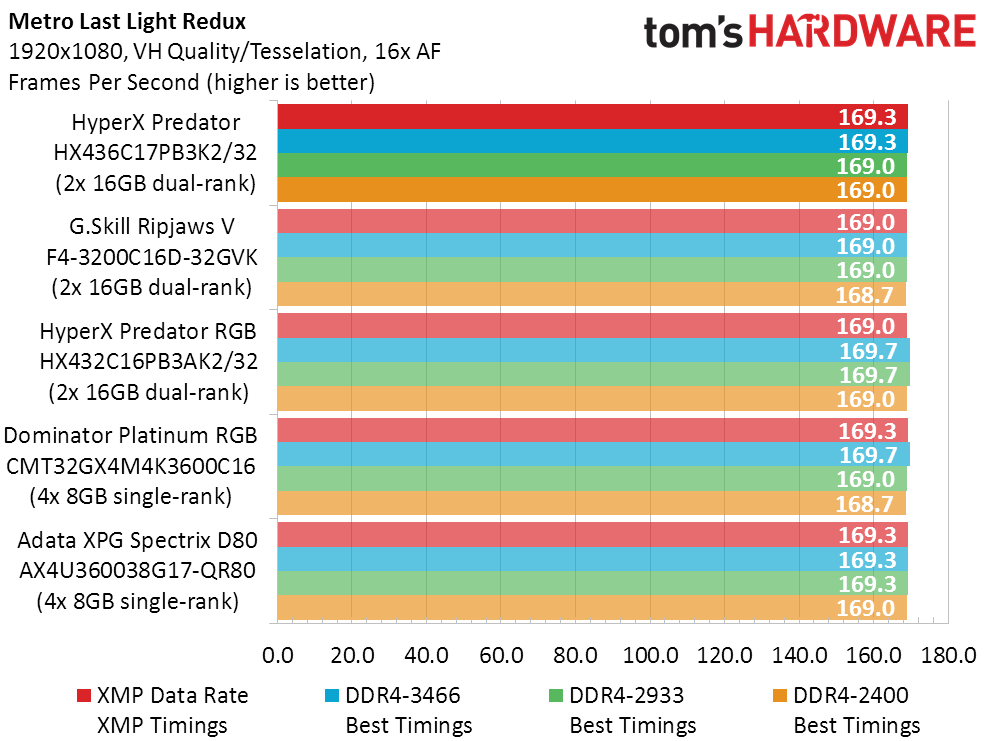
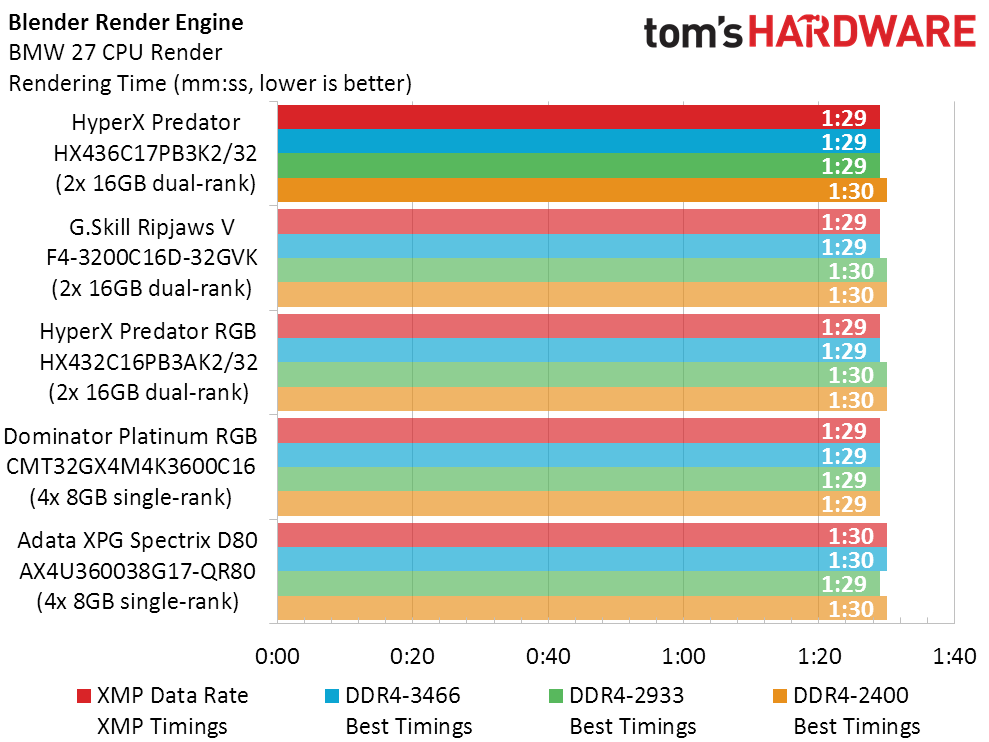
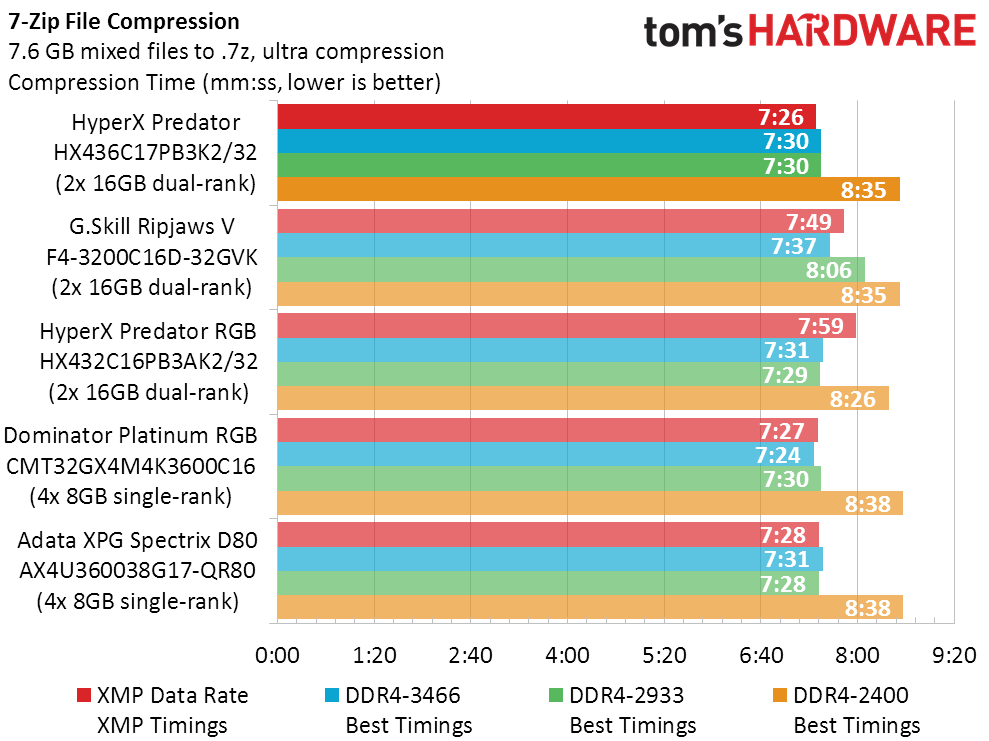
The HyperX DDR4-3600 takes second place in our F1 2015 test, placing right between the hyper-expensive Dominator Platinum RGB and competitively-priced XPG Spectrix D80. Better still, it wins the 7-Zip test, compressing our test file one second faster than the Dominator Platinum RGB and two seconds faster than the XPG Spectrix D80.
Final Analysis
Overall, the performance of the HyperX Predator DDR4-3600 is very close to that of the more-expensive Dominator Platinum RGB kit, and edging out the Spectrix D80. The Spectrix kit has a pricing advantage though, edging out the HyperX Predator kit. You won’t be considering either of those kits if you’re using a two-slot board, but it’s nice to at least be able to put performance into the context of pricing.
Zeroing in on the comparative market price for DDR4-3600 at 2x 16GB and 17-19-19 timings is a little difficult, since some HyperX competitors have already moved on to DDR4-3733, at the same timings. The Predator kit still costs a little more than those, but we can’t know anything about the comparative performance of kits that we haven’t reviewed. And pricing is of course something that can change day to day.
At best, today’s Predator DDR4-3600 C17 kit is a good performer at a small price premium. If its price drops relative to the competition, it could be a great option for those averse to lights who crave fast memory at a fairly high capacity. But until then, you can save a few bucks and get similar performance with competing kits. If one of those kits happens to have RGBs built in, you can at least turn them off.
Photo Credits: Tom's Hardware
MORE: Best Memory
MORE: DDR DRAM FAQs And Troubleshooting Guide
MORE: All Memory Content
-
AcesB I bought this memory for my Ryzen 2600X rig, but the 8Gb version.Reply
Of course, it could not run at 3600Mhz, but it goes fine with 3466Mhz.
It's not mentioned, but this memory uses Samsung B-die (20nm) - Part K4A8G085WB - BCRC 1Gb modules.
It's blazing fast and maybe OC up to 4.000Mhz on Intel rigs, but it doesn't value all this price.
I should go to a cheaper 3200Mhz memory, for +/- half of the price.
